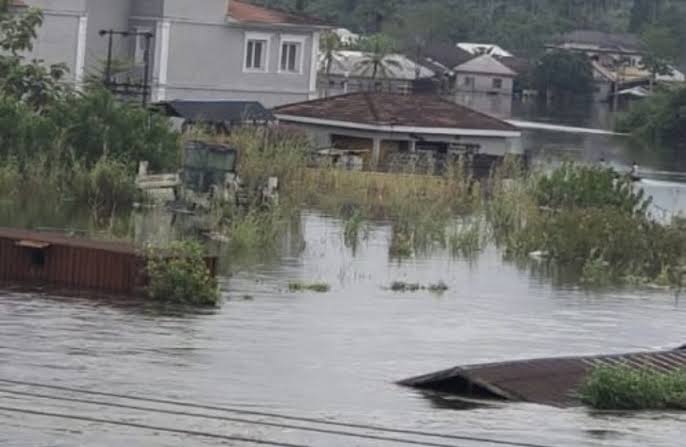Grace Mbah, the co-founder and Executive Director of Climate Action Africa (CAA), has highlighted the risk of flooding faced by coastal cities like Lagos due to rising sea levels.
She emphasized that Nigeria is highly vulnerable to the impacts of climate change, including extreme weather events, rising sea levels, and ecological disruptions.
Mbah stated, “These changes threaten not only Nigeria’s environment but also its economic growth, social development, and overall well-being. Nigeria’s rainy seasons have changed. Coastal cities like Lagos face the risk of inundation/flooding due to rising sea levels.

This saltwater intrusion contaminates freshwater sources and threatens coastal ecosystems. Erosion caused by rising sea levels destroys infrastructure and can displace populations. If global warming exceeds 2°C, Lagos State is predicted to see a 90cm rise in sea level by 2,100.”
READ ALSO: AfDB Approves $50 Million Loan for Yobe State Climate Change Project
She highlighted other climate change issues in Nigeria, including frequent heatwaves, deforestation, overgrazing, and extreme weather events leading to land degradation. Mbah stressed the need for mitigation and adaptation projects, such as developing renewable energy sources, reducing emissions, building resilient infrastructure, and fostering community resilience.
Mbah emphasized the role of climate finance in empowering developing nations like Nigeria to combat climate change, stating that it provides resources for implementing mitigation and adaptation strategies.
She noted, “By effectively deploying climate finance, Nigeria could invest in renewable energy sources like solar and wind power, which could lessen reliance on fossil fuels and reduce greenhouse gas emissions. Funds can be directed towards strengthening infrastructure to withstand extreme weather events, developing climate-resistant crop varieties, and improving early warning systems.”
READ ALSO: CBN’s Recapitalization May Lead to Closure, Acquisition of 11 Banks
Mbah highlighted the concerning climate finance scenario in Nigeria, with the country receiving around $1.9 billion annually, far below the estimated $17.7 billion required to meet its NDC targets by 2030.
She warned, “The consequences of inaction are dire. Climate change could cost Nigeria between 6 per cent and 30 per cent of its GDP by 2050. This economic strain, coupled with environmental degradation and social upheaval, could significantly destabilise the nation.”
Mbah called for a collective effort from the government, private sector, and international community to mobilize adequate climate finance and build a low-carbon, climate-resilient future for Nigeria.



